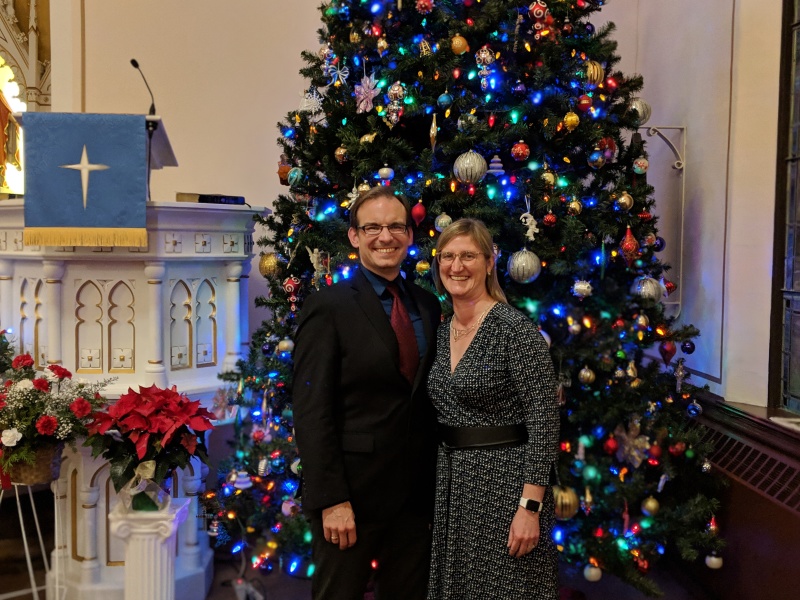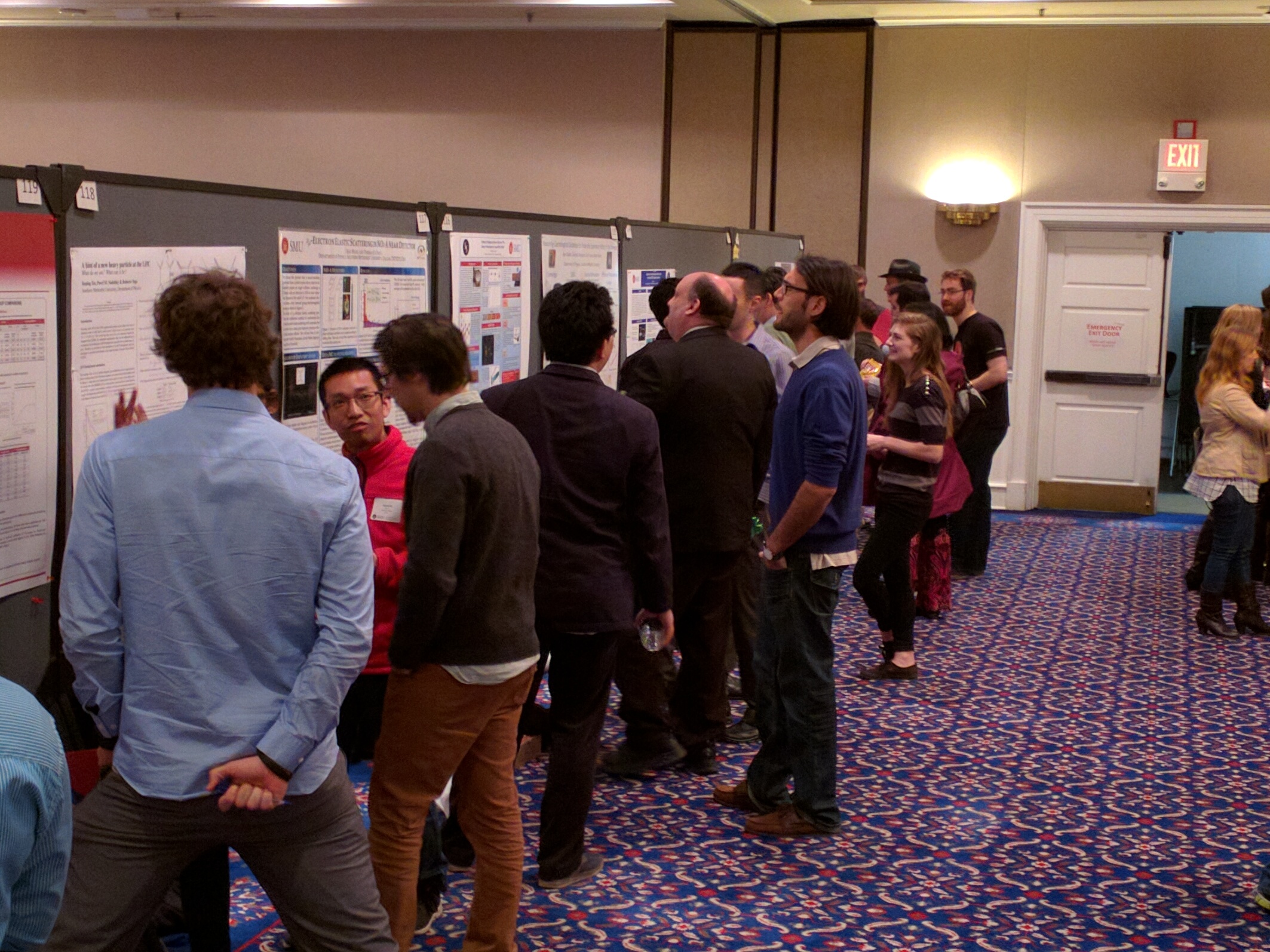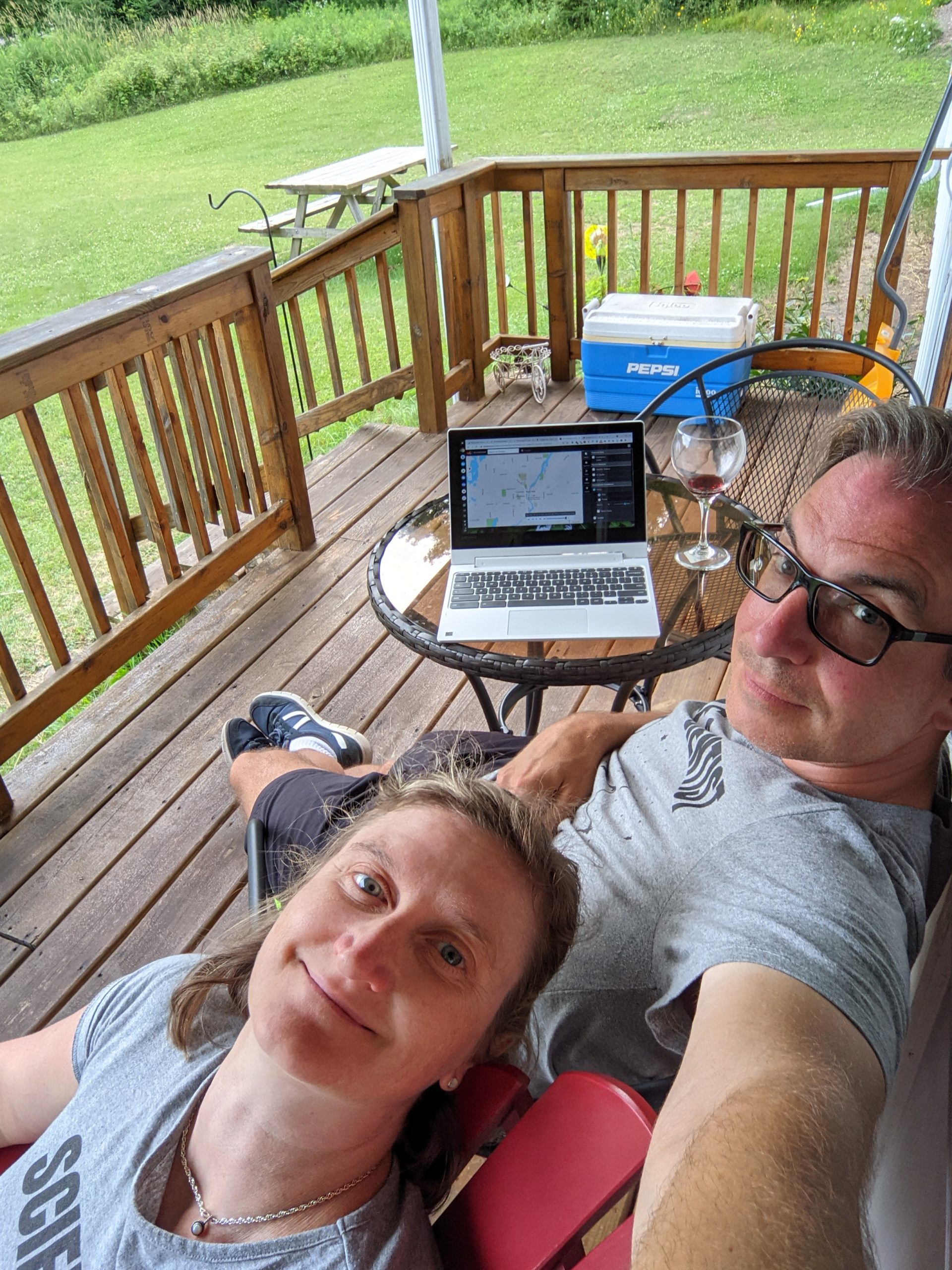In the movie, “The Time Traveler’s Wife,” author Audrey Niffenegger explores the relationship between a husband, who unpredictably travels through time, and his wife, who must deal with his disappearances and harrowing experiences. But what if it was the wife whose life had become unpredictable, and the husband who had to cope?
In some small way, I’ve been living that alternative scenario for quite some time. Jodi is Analysis Coordinator for the CDMS experiment [1]. She and her colleagues have been in long meetings . . . looooooong meetings . . . for weeks. The fruits of their labor appeared in a pair of talks on Thursday at SLAC and Fermilab [2], followed by seminars at a number of institutions on Friday.
I’ve seen the inside of exciting physics results before, but being slightly on the outside is a different experience entirely. I say “slightly” because being her husband exposed me to a most of the personal stress, devotion, and struggle. That’s certainly in contrast with collaborators, who only see little outside the daily meetings.
The past month has been built on a foundation of normal responsibilities: teaching and committee duties. Those take a minimum of time out of each week to do well. Added on top of that were the collaborative responsibilities: data-taking at the Soudan mine, data analysis, and committee meetings. On top of all of it was amplification, however. The stress was higher, the meetings were longer, the committees multiplying.
So I became the time-traveler’s husband. Jodi disappeared for long hours in paper-writing meetings with her fellow analysts. The internet exploded with rumors about the CDMS result while I was at CERN. Jodi was livid. Not only were the rumors wrong, in hindsight, but they had layered on top of them potentially dangerous accusations about the collaboration’s behavior and the behavior of scientific journals. The collaboration appeared to remain stalwart and tight-lipped.
Rumors in physics are particularly dangerous to the scientific enterprise. A collaboration deserves to own its result until release. They deserve to verify the claims in their data and to patiently and carefully explore both the meaning and consequences of their work. Rumors, on the other hand, try to force the hand of the collaboration, to trick them into leaking information or making public statements that threaten to cheapen the announcement, the paper, and their claim to the quality of the work. Rumors work against the scientific process, just as they work against the legal process. Of course, we’re all humans and rumors are inevitable. It was clear, however, that they took a personal toll on the members of the CDMS collaboration, grinding on them emotionally at a time when their full intellectual faculties were required to conclude and present their work.
The week of the scheduled release was a tangle of meetings and travel. Jodi would announce to me that she would need to work late at SMU, possibly until 10pm. We’d grab a fast dinner near campus (or I would grab her dinner and drop it off in her meeting), and then she would disappear into a polycom unit for hours. 10 pm would come and go. The night before her early morning flight to California we didn’t leave SMU until 11:30 pm.
The release of the CDMS result seems to have gone very well. Younger members of the collaboration followed the big talks with their own institutional seminars. Back-channel word from the funding agencies suggested that they were pleased the release occurred in the U.S. first – that’s EXTREMELY important for the long-term health of the funding-research partnership in this country. The press had their fun, too [3].
Science is a mix of process, press, and politics. Anybody who thinks otherwise hasn’t tasted an important result. I once thought that way, a long time ago when I was a graduate student. Now, as the time traveler’s husband, I have instead tasted the long absences, the scourge of nerves set on a hair-trigger, the anguish of listening to others speak wrongly about your own work when you yourself must say nothing in order to protect the enterprise.
It also makes me wonder if, one day, Jodi will be a time-traveler’s wife.
[2] http://www.slac.stanford.edu/~madejski/kipac.all_cropped.mov and http://vmsstreamer1.fnal.gov/VMS_Site_03/Lectures/WC/091217Hsu/index.htm
[3] http://www.nytimes.com/2009/12/18/science/space/18dark.html?_r=1&hpw




